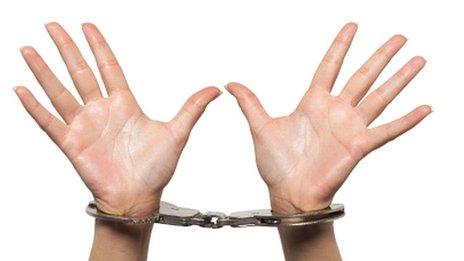The workshops helping women stand up to forced marriage
- Published
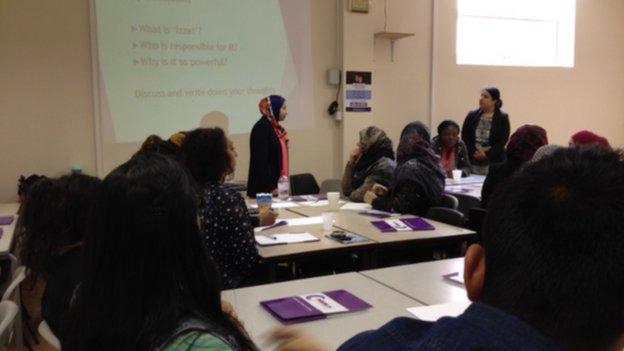
Forced marriage is now a criminal offence in the UK but there are concerns that the message is not getting through.
The Muslim Women's Network UK (MWNUK) is holding workshops across England in an attempt to come up with ideas on how to eradicate the problem.
The Birmingham-based charity, which aims to empower women and girls, is concerned that it still receives calls from teenagers who are being pressurised to marry against their will.
"It is still a huge problem, it is entrenched in culture," said Faeeza Vaid, MWNUK executive director.
"We all need to be unified to say it [forced marriage] is against the law, human rights and an injustice."
Forced marriage was outlawed in June 2014 in England and Wales. Scotland passed similar legislation in September 2014 and it was made an offence in Northern Ireland in January this year.
Anyone found guilty of forcing a person to wed could face up to seven years in prison.
But MWNUK says young people are still being coerced into marriage and incidents are hugely under-reported.
The government's Forced Marriage Unit says it dealt with 1,267 cases in the UK last year.
More than a third involved women from a Pakistani background, followed by those of Indian (7.8%) and Bangladeshi (7.1%) heritage. They included 135 cases of people with disabilities and eight cases involving members of the lesbian, gay and transgender community.
Dressed up
A workshop in Cheetham Hill, Manchester, was attended by 25 Muslim women and started off with a powerful monologue, performed by a victim of a forced marriage who now uses her passion for theatre to share her experiences.
Yasmin was 12 when she got engaged. Her fiancé was in his 20s and he lived in Pakistan and she felt she had to go through with it for the family's "izzat" or honour.
Yasmin, which is not her real name, arrived home from school one day and was told to get changed.
She said: "I was dressed up as a bride for my engagement ceremony... It was organised by my relatives and my mother said we had to go through with it, although my dad was against it."
Yasmin got married at 16 and had four children, but is now divorced. She says she was physically, mentally and sexually abused by her husband.
The other workshops, which are funded by the Department for Communities and Local Government - are taking place in Rotherham, Rochdale, Nottingham and Bradford.
Ms Vaid said: "We hope to achieve a cultural shift on this issue. We need to send a message out to victims and people at risk that help is available and advise them of the steps they need to take to prevent them from becoming a victim of a forced marriage."
'Belief system'
Many of the women who attended the event work with young men and women who have been pressurised to marry, or are at risk.
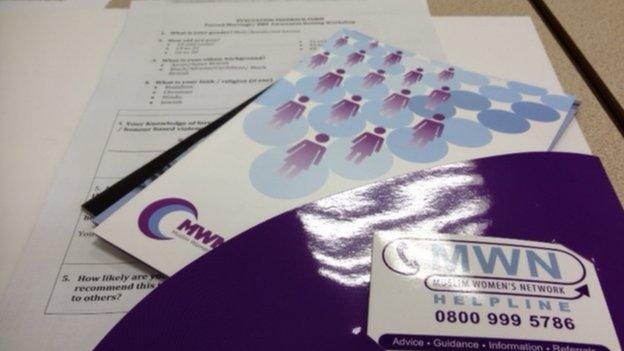
Kirran, who is a Support Worker from Rochdale and in her 20s, said: "The biggest factor is educating people and creating awareness.
"We need to hold sessions in schools so children know where they can go to for help and can challenge their parents to say it is wrong."
Mussarat, who is in her 30s, said: "Being at this event has given me knowledge about what to do if I come across someone who is in trouble."
But some of the women acknowledged they face an uphill struggle.
Rabia, who is in her 40s, said: "I'm not surprised the problem still exists, so many don't report it to the police which is why it still continues. It's about raising more awareness and over time it may hopefully change."
Shabnum, a worker at an Asian women's refuge said: "I think it's going to be a long time before it can be eradicated. You have to get in with the communities, the faith leaders and good luck with that."
She added: "It's so culturally entrenched that it's almost about breaking down a belief system."
You can hear this story on BBC Asian Network Reports at 13:00 and 17:00 BST on Thursday 28 May and on BBC local radio stations
- Published26 January 2015
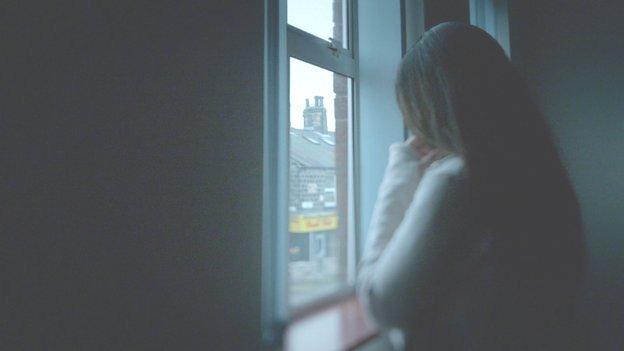
- Published13 June 2014
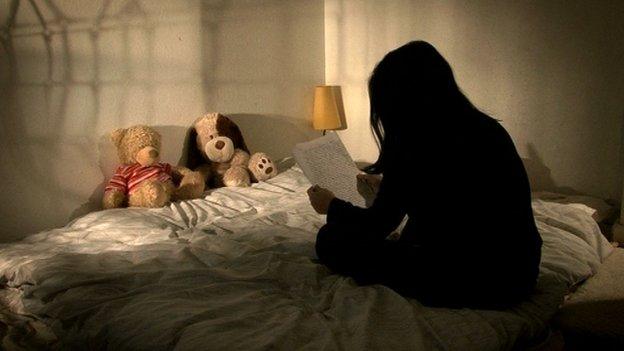
- Published16 June 2014
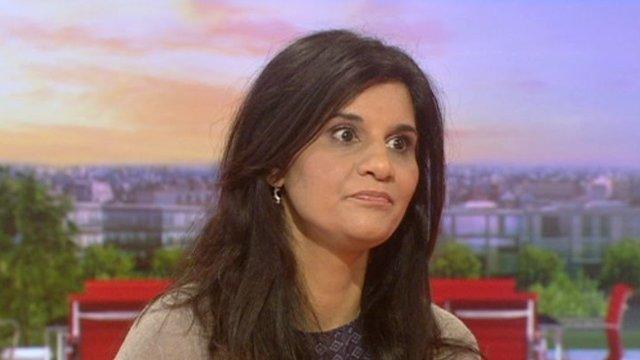
- Published7 April 2014
